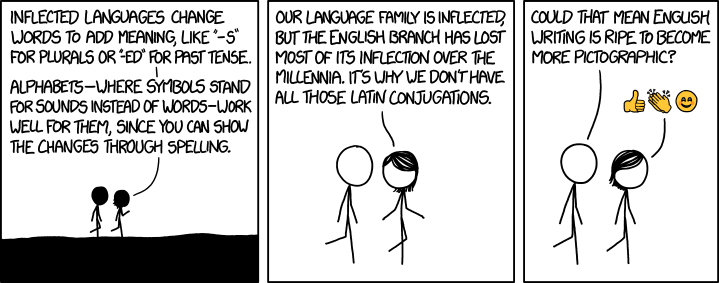Recently someone who runs some sort of online discussion forum wrote to ask me about the accuracy (or otherwise) of two bipartite claims. One said that "Language became prominent only after printed word entered our consciousness" and that "This caused the externalization and objectification of 'knowledge'," and the other said that in non-literate cultures "people have more verbs in their language" while we English speakers "have more nouns," and that "Our language [= English] is actor centered and their language is action centered."
I feel I have to make an effort to aid the benighted, so I responded to this cry for help. I made a few false starts on drafts containing phrases like "utter raving nutball" and "toxic, festering, postmodernist bullshit," which I then erased, and finally I settled down to write a kinder, gentler response. I didn't manage brilliantly — what I wrote won't win any prizes at a kindness-and-gentleness show, if they have such things — but I reined myself in a little (not voicing my suspicion that the writer's brain had been poisoned by reading Derrida, for example, because I think the accusation that someone has read Derrida is always offensive), and what I wrote back was as follows.
Read the rest of this entry »
